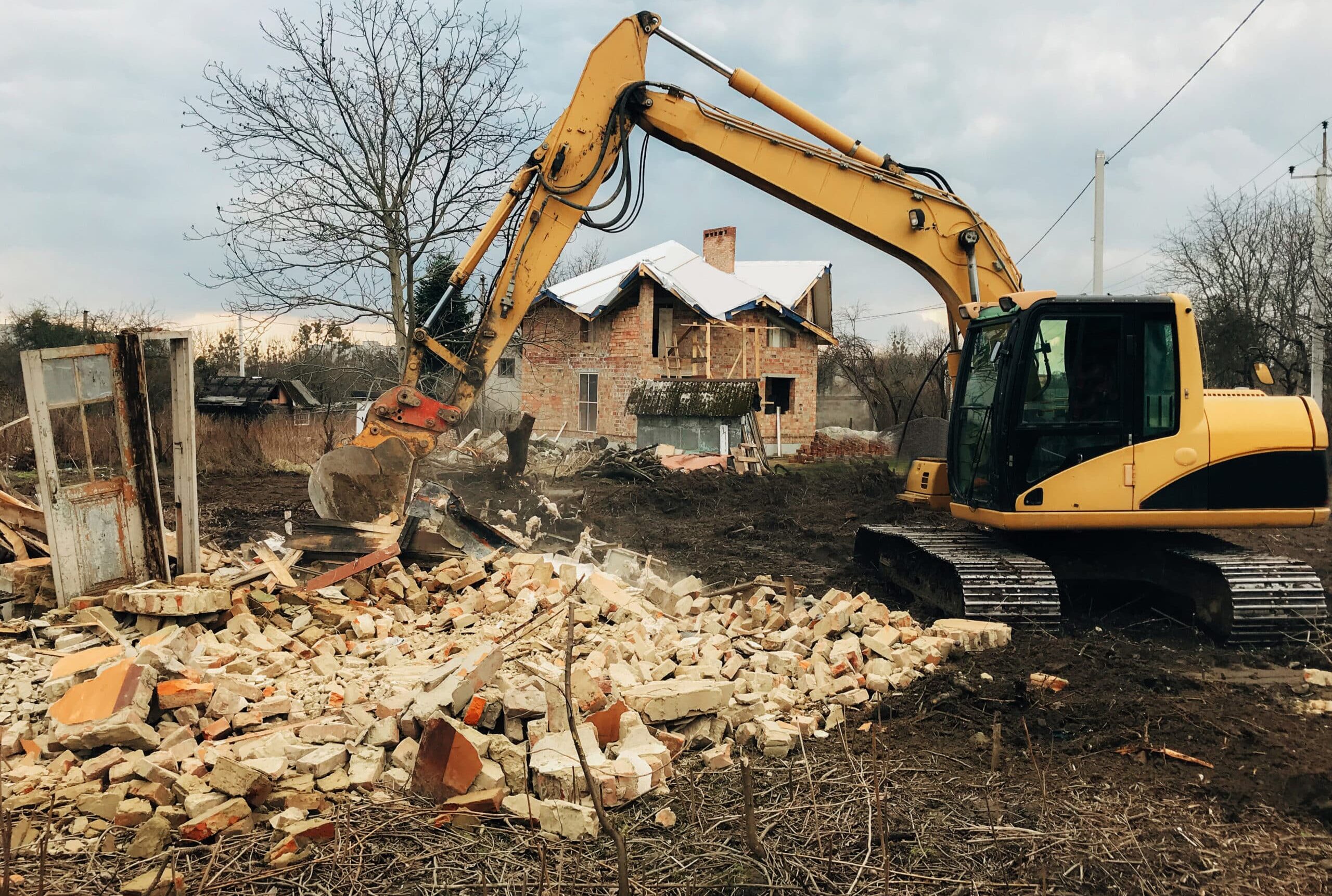Understanding all the nuances of North Carolina’s eminent domain laws is quite an overwhelming task. However, if you have been contacted by the government about having your land condemned, having a basic notion of how eminent domain works in Carolina is essential to protect your property rights.
Our eminent domain attorneys provide an overview of the most important aspects of eminent domain laws in North Carolina and discuss what options you may have if you have been notified that your property may be subject to condemnation.
How Does Eminent Domain Work in North Carolina?
Eminent domain is a legal power that allows government entities to acquire private property for public benefit. It can be used to build public projects such as building roads, schools, or public utilities. In North Carolina, eminent domain takings are regulated by both state and federal law. The North Carolina Department of Transportation routinely uses eminent domain to accomplish road construction and infrastructure projects throughout the state.
It is worth pointing out that eminent domain does not authorize the government to take property without providing compensation. Property owners have the right to receive fair market value for their property, as well as compensation for other damages and relocation expenses if applicable.
If you are facing an eminent domain action in North Carolina, it is important to understand North Carolina law, and your rights and options as a property owner. It is best to consult with an experienced attorney who can guide you through the process and help ensure that you receive fair compensation for your property.
What Happens After I Receive an Eminent Domain Notice?
If you receive a notice informing you that your property may be subject to eminent domain, the first step you should take is to contact an experienced eminent domain lawyer. In North Carolina, the legal process typically begins with the government filing a complaint and declaration of taking in the superior court of the county where the property is located.
The government may then hire an appraiser to determine the fair market value of the property based on its highest and best use and may offer compensation based on that valuation. If the property owner disagrees with the valuation offered by the government, the property owner may request the appointment of commissioners to re-evaluate the property in order to determine just compensation.
In this case, the commissioners usually visit the property, hear testimony from both the government and property owner, and hold hearings to determine the fair market value of the property and the amount of compensation due. If the property owner is still in disagreement, he or she has the right to appeal the ruling of the commissioners and have the case presented to a jury.
What Are the Types of Compensation Available to Property Owners?
The Fifth Amendment of the Constitution of the United States establishes that government entities may only take private land for public use if just compensation is provided to the landowner. In North Carolina, there are a few different types of compensation available to property owners, depending on the type of taking and specific circumstances of the case.
An essential component of just compensation is the calculation of the fair market value of the property taken. This value can be determined in a few different ways – usually by comparing the sale price of similar properties in the area and considering any unique characteristics of the property in question.
An appraiser may also consider the property’s highest and best use – rather than valuing the property based on what it is currently being used for. The appraiser can base their analysis on the potential uses of the property in the future after it has been developed.
Property owners may also be entitled to compensation for any damages to the remaining property, such as loss of access or reduction in value. In addition, if the property owner is forced to move as a result of the eminent domain project, they may be eligible to receive relocation assistance. Relocation assistance can include payment for moving expenses, temporary housing, and assistance in finding a new home or business location.
How Do Severance Damages Work in Partial Takings?
There are some eminent domain projects that require the government to take only a portion of private property while still allowing the original landowner to keep the rest of the property. This is referred to as a partial taking, a process that, unfortunately, often leads to additional damages to the landowner that extend beyond the property’s fair market value. This is when it becomes crucial to understand severance damages and how they may help you secure additional compensation.
Severance damages cover the loss in property value caused by the taking of a portion of a property through eminent domain, which sometimes leaves the property owner with a small and oddly shaped uneconomic remainder of little to no practical or beneficial use, making it impractical for the property owner to use or develop it.
In such cases, property owners may be entitled to additional compensation for the remaining land that is essentially worthless. It’s worth noting that severance damages may not be readily offered by the government as part of their initial offer, so it is important to speak with an attorney to ensure you are getting fully compensated for your property.
What Are Some Examples of Recent Eminent Domain Projects in North Carolina?
Eminent domain and land condemnation have been highly contested issues across the country as well as in North Carolina, primarily as a result of road and highway projects by the North Carolina Department of Transportation (NCDOT). In recent years, several property owners have been affected by a number of high-profile projects.
For example, the N.C. 54 Corridor Improvements from U.S. 15/501 in Chapel Hill to N.C. 55 in Durham is an ongoing project with acquisitions beginning in 2022 and construction scheduled for 2024. The goal of the project is to alleviate traffic by widening roads, improving intersections, and making infrastructure changes that allow more people to use alternative methods of commuting, such as walking and biking. This project will likely require the acquisition of several portions of private land along the Corridor.
Another example is the U.S. 70 Improvements from Glenwood Avenue west of T.W. Alexander Drive to I-540 in Durham and Wake Counties, which is also an ongoing project that required countless right-of-way acquisitions. These and other NCDOT projects have caused property owners to raise concerns about the resulting impacts on their homes and businesses.
Can You Defend Yourself Against Eminent Domain Actions?
If you have been notified by the NCDOT or any other government entity in North Carolina about a potential eminent domain project affecting your property, it is important to consult with an experienced eminent domain attorney to learn your rights and options.
Your attorney can advise you on the best approach for your case – whether that means challenging the government’s intention to take your property or fighting for better compensation that more accurately reflects all your losses resulting from losing your property. In some cases, it may be possible to demonstrate that the taking of your property is not necessary or that it is being done in an arbitrary or discriminatory manner.
You may also challenge the amount of compensation offered. If you believe that the government is not providing you with just compensation for your property, you could hire an independent appraiser to conduct an unbiased analysis of your property and any resulting losses. Another option is to question the legality of the taking in cases where the government may have disregarded your right to due process.
At Hansen, Howell & Wilkie, PLLC, our eminent domain attorneys have helped countless clients affected by eminent domain projects in North Carolina. We understand how overwhelming and frustrating it can be to be told you will be deprived of some or all of the property that you worked so hard to obtain and how it impacts you in more ways than just financially. Unfortunately, once the eminent domain process has been set in motion, it is hard to stop it – but failing to take any action as a property owner only makes things worse.
Our eminent domain lawyers can help you understand your property rights and work with you to develop a legal strategy to ensure you receive fair compensation for your property and any damages you may have sustained as a result of the eminent domain project. If you have been affected, reach out to our firm by calling 919-256-5266 and requesting an initial consultation to discuss your case and learn your options.




